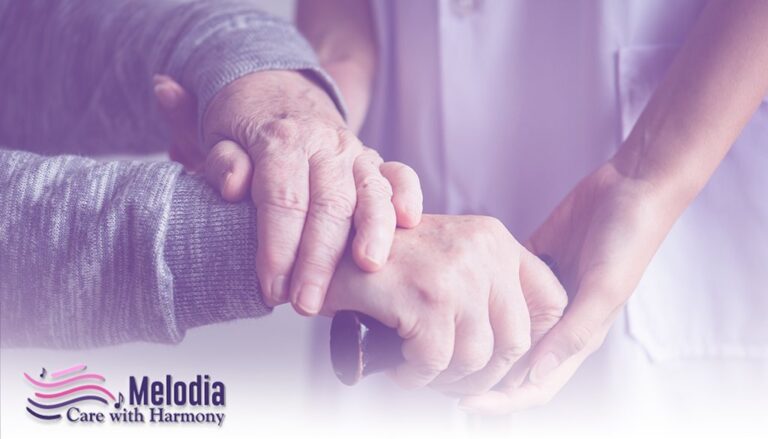End Of Life Care In Walnut Creek City, California
Individuals with a terminal illness who are nearing the end of their lives can receive physical and emotional support from end-of-life care services. Caregivers help your loved one while also providing support to your family during this trying time.
Every person has the right to express their preferences for where they would like to receive end-of-life care and die. Individual requests should be written down in a customized care plan that is evaluated on a frequent basis as the situation evolves. We help loved ones throughout the process – you may have a lot of questions about the care plan or different types of therapy and our staff would be pleased to answer them.
It’s a natural part of our lives but that doesn’t make the process any easier. As more people choose to spend their final days at home, it’s critical for families to have access to caring and supportive home care services. Unfortunately, in the training process for caregivers and health care workers, this part of care is frequently misunderstood or ignored.
Every year, millions of seniors are able to age in place they desire, thanks to home care. Elderly can stay in their own homes rather than moving to an assisted living facility or a nursing home, where they are the happiest and most comfortable.
This part of hospice palliative care refers to care given to people who are nearing the end of their lives. It is frequently misunderstood to refer to palliative care as a whole.
Families benefit from our elder care services. Melodia Care helps families spend more quality time together by making it easier to care for elderly loved ones. At the same time, we give family caregivers much-needed break, lowering their risk of caregiver stress.
We offer choices to assist you and your loved one during this difficult time. Our caregivers will ensure that your loved one is as relaxed as possible. We will be there for you and your family, lending a hand whenever you need it.
What Is End Of Life Care?
When a family member is given a short life expectancy, they frequently require medical attention to alleviate pain and other disease symptoms. A typical solution is end-of-life home care. Close family and friends are frequently entrusted with obligations. If you find yourself in this situation, you may discover that you lack the physical or emotional strength to handle these obligations alone. Hospice professionals or social workers who come to visit can assist.
When a patient is given a short life expectancy, they frequently require medical attention to alleviate pain and other symptoms. A typical solution is end-of-life home care. Close family and friends are frequently provided with responsibilities. If you find yourself in this situation, you may discover that you lack the physical or emotional strength to handle these responsibilities alone. Melodia Care hospice can help.
Who Is Supported With End-Of-Life Care?

If someone is expected to die within the next 6 to 12 months, they are thought to be nearing the end of their life, while it is not always possible to predict when someone will die. Those whose death is deemed to be impending are also given End-Of-life Care.
End-of-Life Care: What You Should Know?
It’ll be one of the most difficult conversations you’ll ever have with an elderly loved one. No one likes to bring up the subject of end-of-life care. But it’s a normal part of the human life cycle and it’s a topic we’ll all have to discuss at some point.
It’s critical to identify this since having the conversation sooner rather than later can assist our older loved ones feel more at ease. Fear of pain, indignity, desertion and the uncertainty are all issues they’re dealing with. That’s why having the talk early on is crucial, as is looking into choices for end-of-life care that preserves your loved one’s dignity.
Why Are Home Care Services A Common Option For End-Of-Life Care?

A skilled caregiver visits your loved one in his or her home and attends to his or her daily requirements. To be clear, we’re not talking about a doctor or a nurse. A professional caregiver, on the other hand, is someone who possesses vital attributes such as compassion, understanding, attention to detail and a willingness to assist.
Many caregivers are educated, if not certified, in areas such as dementia care and fall prevention. When your elderly loved one can no longer live alone and requires daily support, these specialists can be quite beneficial.
A critical care plan can be carried out by a professional caregiver. A care plan is a live, breathing document that changes as your ageing loved one’s requirements change. It manages care across a wide range of individuals, locations and media. It can be a useful addition to end-of-life home care.
That is what makes end-of-life home care so distinctive and remarkable. Instead of placing your loved one in a nursing home or assisted living facility, home care allows him or her to remain in their own home.
End-Of-life Care Planning

People of any age can receive end-of-life care. End-of-life care planning entails bringing together a team of medical experts to assist you live out your days as pleasantly as possible.
Start The Conversation

Many of us are uncomfortable discussing the type of care we would desire at the end of our life. But it’s only via these discussions that we’ll be able to tell people what kind of care we want and what we value.
According to experts, the greatest approach to get others to talk about end-of-life care is to talk about it yourself. He/she recommends that you start the decision-making process by pondering the following “what if” situations:
- What if you were told you had a terminal illness?
What if you had a terminal illness from which there was no hope of recovery? Which therapies or life-saving procedures would you accept or reject?
- What if you weren’t able to make your own choices?
What if you couldn’t make these choices for yourself? What kind of person would you want to make them for you?
- Who would make medical decisions for you if you were not able to make them yourself?
What if that loved one was the one who had to make those choices? Is he or she aware of your wants?
We recommend holding “what if” dialogues around milestone events such as weddings, anniversaries, birthdays, retirement, graduation, downsizing and family vacations. Keep it lighthearted but sincere. You might be shocked to learn that informing your loved ones about your preferences can spark a frank talk among generations about terminal illness, funerals, religious beliefs and other end-of-life issues.
Advance Care Planning

Advance care planning allows you to consider your medical treatment and health-care needs in the future. Your family, friends, caregivers and doctors will be able to understand how you want to be cared for now and in the future if you make a plan ahead of time. Whether or not you are receiving elder care services, this is critical.
If you are no longer able to make medical or other choices, you may opt to give someone you trust an enduring power of attorney or enduring guardianship. From one state to the next, the regulations are different. They must be made while you are fully aware of the action that is going to be taken.
Caregivers' Support

There is assistance and support available if you are caring for someone who is nearing the end of their life. Learn more about how to care for someone who is nearing the end of their life.
You might need to take a small rest now and then. Learn more about how to get scheduled or unscheduled respite care.
It’s easy to forget to look after yourself when you spend the majority of your time caring for others. As a caregiver, you have access to a variety of resources.
Melodia Care follows these criteria and takes a client-centered approach. This care model’s level of service is based on your loved one’s comfort and well-being. Caregivers provide vital personal home care services to assist with the following:
- Reduce the severity of your pain and other symptoms.
- Assist with personal duties such as clothing, bathing and maintaining personal hygiene on a daily basis.
- Loneliness, tension and anxiety can all be alleviated.
Simultaneously, we ensure that family and friend caregivers receive the support and respite they require. Meal preparation, laundry, minor housekeeping, shopping and errands are just some of the things we do. Our carers serve as an anchor for family caregivers in times of stress, delivering emotional support or a helpful hand whenever it is needed near the end of life.
Melodia Care can offer you the compassionate assistance and care you require during this tough time. To assist you in determining the best care options for your loved one. We’ll be pleased to provide any information you require and assist you in scheduling an in-person appointment with a Melodia Care representative.
You can reach us at any time of day or night by contacting us through our 24/7 online customer support chat or by calling 1-888 635-6347 (MELODI-7).
